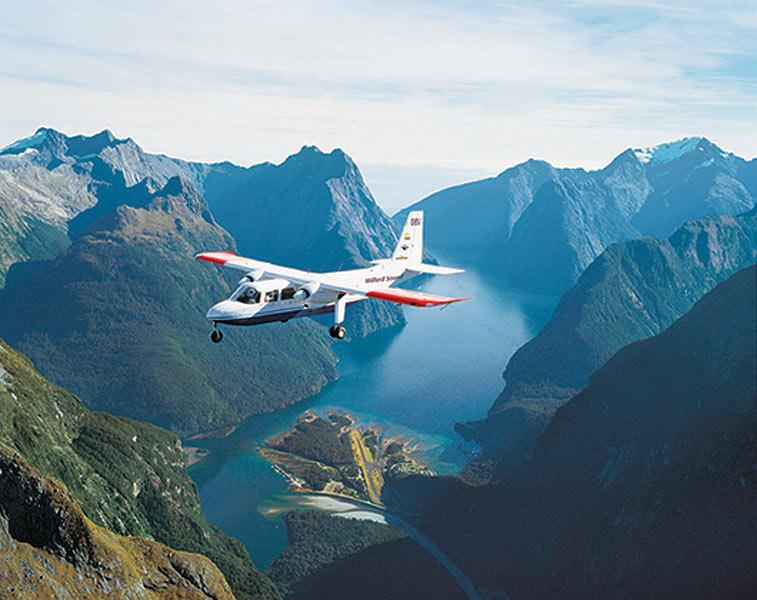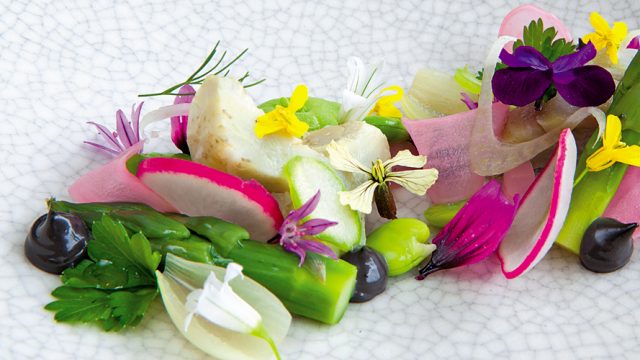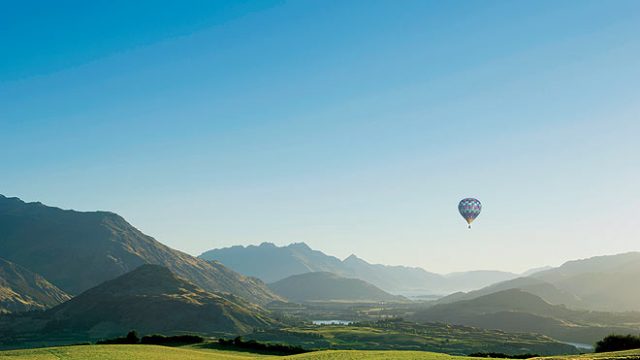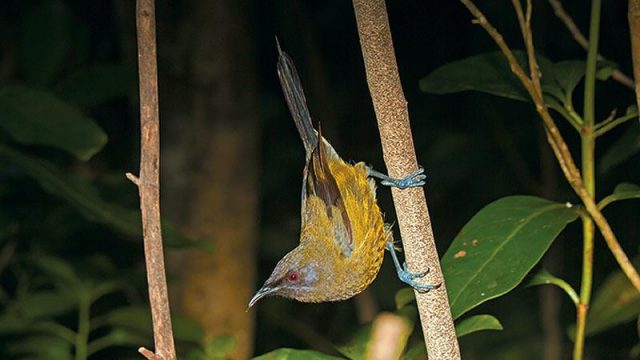It isn’t close. It isn’t cheap. But if your budget will stretch to it and you have
Well, not all of it. Chances are you’ll be flying into Auckland, the self-professed capital of the South Pacific. Auckland itself is a nice enough place, set engagingly on the water, but that’s about it. It’s billed as the city of sails, since there are more boats per capita here, allegedly, than anywhere else in the world. A sunny day on the water would certainly seem to indicate as much. Unfortunately, what Auckland is also famous for is rain. Don’t bother bringing your bathing suits if Bali is the temperature you’re used to for your seaside holidays.
Auckland is a city that seems to be discovering itself. The local press is full of articles about how the fine-dining scene is finally finding its feet. All very well, of course, but the tone of the articles is as much questioning as congratulatory; as if the writers aren’t convinced that it is true, or that it will last. The South Pacific isn’t the same as the North Atlantic, clearly, and New Zealanders in general and Aucklanders in particular are keenly aware that their corner of the globe is still a bit of a backwater. What that does mean, however, is a refreshing lack of pretence. Wandering into one of Ponsonby’s posh bistros could mean that you’re sitting next to the New Zealand version of a celebrity. But the fact that you’re wearing sneakers won’t get you hurled into the street. This lack of pretension is in fact one of New Zealand’s most engaging attributes.
Auckland itself has the full range of tourist stuff to do, including museums, a tall tower the locals are inordinately proud of and parks everywhere where you can take it easy. It’s not a breeze to get around, however. Public transport is measly, taxis are expensive and the city sprawls like a drunk nawab. My advice would be to stick close to the sea in the Central Business District. Kelly Tarlton’s SEA LIFE isn’t far, and is a beautiful way for the whole family to get up close and personal with sharks, rays, penguins and the like. It also has a fantastic exhibit that replicates living conditions in Captain Scott’s expedition to the South Pole.
When you tire of all this, take to the sea. The island of Waiheke is a cosy ferry ride away, but is a world removed from busy Auckland. Even though it’s really close to Auckland, its weather is quite different, due to which vineyards have flourished here. We started our wandering around the island at one such place. Wild On Waiheke features stuff such as archery and clay-bird shooting, set within a vineyard that produces wines under the Topknot Hill label. Brilliant idea, you’d think: guns in the hands of the inebriated. Not to worry. No bullets, just ‘shotguns’ engineered to shoot lasers. Still, drivers from different cultures might be shocked as they drive by. Further around the island, and with a fantastic view of Auckland (if it isn’t raining) is Mudbrick, a famous vineyard with super wines and a truly wonderful cuisine. Apparently this place is available for weddings. One can see why. A dinner here will get the hormones pumping just as fast as the wine.
While on Waiheke, keep an eye out for the local flora and fauna. Remember that New Zealand had practically no indigenous land mammals till the Maoris arrived. What that means is lots and lots of near-flightless birds, who’ve taken an awful pasting with the onrush of possums, rats and the like who’ve settled in just as comfortably as humans. Relatively isolated islands are a good place to consider what an older New Zealand might have looked like. The famous kauri trees are practically all gone from Waiheke, but remnant specimens are still around for the treephiles to ogle at. Ask around; they’re truly wonderful to look at, and are what’s left of a world that evolved over millennia and disappeared in the space of a few short generations.
Consider this about ‘unspoilt’ New Zealand. The sheep that symbolise it aren’t from there. The pastures they graze on have been torn out of the earth in the past 150 years or so. And their emissions do their bit to poop on the ozone layer. Even the most beautiful places have their dirty secrets. The good news about New Zealand is that the country’s aware of this, and everyone seems to be doing their bit to keep what’s left virgin, and return whatever’s possible to its original state. You can muse over this as you roll through the open country south of Auckland on the way to Rotorua.
We made a couple of detours en route, the first of them to the Waitomo Glowworm Caves. You can stay overnight, and there are numerous adventure options available, including abseiling for the hardcore cavers. But for the journeyman tourist, a quick couple of hours should suffice to check out these old limestone caves, cut into fantastic formations by water. What makes these old cathedrals especially memorable is that once you’re inside and acclimatised, you’re stuck into a boat, which then navigates by the light of glowworms attached to the walls and ceilings of the caves through which the subterranean river runs. You come out into the light, and there’s a super restaurant on the premises, serving a delicious local Angus beef burger. Naturally, weddings are welcome.
Closer to Rotorua is something that you have to do, regardless of how you feel about Tolkien, Jackson or the Hobbit industry. Just outside the town of Matamata lies the Alexander sheep farm, where the Shire was recreated for the original Lord Of The Rings movies, and now for The Hobbit. This place is utterly magical, and made more so for us because our guide was the genial Ian Brodie, whose publications on Ring lore and photos of New Zealand alone are enough to make him a household name. He was a fount of information about the movies in particular and New Zealand in general but, I have to say, you could come here solo and still be captivated. Bilbo Baggins’ home, the water in the distance and the party tree are all lovingly preserved, and now you can get The Green Dragon Inn’s home-brewed suds in a tankard by the fire as well. I’ve no doubt it’s available for weddings.
Rotorua itself seems the tourist heart of the North Island. Famous for its geothermal activity — which means hot sulphur springs and bad smells in close conjunction — it is also fast acquiring a deserved reputation for adventure tourism to go with its seedier casino culture. Ignore the latter, is my advice, and check out the natural beauty on display. Set by a gorgeous lake, between rolling meadows and forested peaks, it really is almost tritely lovely. Even the resident cattle, sheep and deer are photogenic. You can see plenty of these beasts just driving around. A closer, funnier look can be had at the Agrodome, a fun place for urban families to feed animals, watch sheep-shearing and wander about looking at all the meat and wool. World-class mountain bike trails for novices and experts are to be had in the Whakarewarewa redwood forest just outside town. Hire a bike for the day or a few hours, hire a guide or follow a map: the choice is yours. There are few things as therapeutic as cycling through a preserved forest. If you get sore, never fear. Wash away the pain in the naturally hot pools at the Polynesian Spa, where there are even ‘private’ pools for couples. The hot pools here are boiling, by the way, and not pleasantly warm. Be careful you don’t get cooked.
Up in the hills, a short car ride away, are two other gems. One is a canopy tour, via ziplines, of one of the North Island’s remaining patches of virgin temperate rainforest. A walk through this primeval forest, a few yards away from a major road, is a thrill: to coast through these enormous sentinels suspended from a wire is something else again. Up the road is another way to check out this forest. Private entrepreneurs bought a disused railway line a few years ago and now run small electric railcars on it. The line runs past this forest, a quiet highlight of a fun, silent voyage that takes in pastures, farms and splendid views of Lake Rotorua in the distance.
Back in Rotorua is the highlight of my visit. A visit to one of the Maori cultural centres that dot the area is a given. We had the luck to go to Te Puia, which prides itself on being dedicated to cultural conservancy. It maintains schools that teach Maori carving and weaving, and the shows they put on are impressive, from the intimidatory Haka to the beautifully harmonised singing of larger groups. The show’s rounded off by a hangi meal, where the food is slow-cooked over superheated stones. The Maori have had their own issues with the European era in their land. A place such as this is a good place to see the Maori and their culture in a way they’d like it represented. A chat with one of the genial guides will tell you a lot more than an internet search will about the state of race relations as well.
Meanwhile, on the tourist side: it’s time to head to the colder, even prettier South Island. If you’re lucky, as we were, the weather will be clear and you’ll get a good look at Mt Cook rising out of the clouds. And then you’re over Queenstown and landing in the shadow of the well-named Remarkables. Apparently, the winter skiing here is world-class. I’m here to tell you that it isn’t too shabby in summer either.
In fact, it’s stunning. Queenstown sits on the edge of Lake Wakatipu, a freezing cold lake in what the locals call the Southern Alps. It’s an apt name. There are glacial lakes in the highlands, alpine meadows dotted about, ancient forests flanking the peaks and snow pretty much in every direction. No wonder, then, that practically every turn will have LOTR nerds sobbing in an ecstasy of recognition.
I’m not one, thankfully. But Queenstown and its environs are beautiful almost beyond description. Our first afternoon there, the sun’s up and we’re sitting by the lake with a drink. The latitude and the depleted ozone here make the sunlight almost unbearable, but in a good way. Boats putter about in the clear blue lake, clouds mass behind the Remarkables: I don’t even mind the uncouth antics of the gap-year wanderers in the near distance as they hurl themselves about in their post-adolescent way. Across the water is the botanical garden, with its mammoth redwoods and Douglas-firs and beautiful beeches. Behind that is a golf course, also on the water. A hazy vision forms of bringing the family over and never leaving. It’s a common enough thought, I find; the area’s beauty and abundant hospitality jobs lead to an expat population that rivals the locals. I see another reason the next day. Adrenaline junkies can spend their lives here.
Suffice it to say that I jumped off a bridge with a rope attached to my ankles and off a plane with a parachute. Funny thing: there’s more adrenaline in the bungee jump, perhaps because there isn’t an instructor attached. I rocketed down a river on a jetboat. I spent lots of time in small planes. I spent an impossibly pretty afternoon scouting LOTR locations — Really? Okay. Isengard. Lothlórien. Amon Hen — with a genial guide and a 4WD. And, in what is my most cherished memory, I took a small plane across the Southern Alps to Milford Sound, where Mitre Peak rises out of the clouds as if out of a dream. The little Islander putters through the Alps, glaciers and crags above us, and then we’re over the Sound (which is actually a fjord, as its origin is glacial and not riverine) and banking over the ocean and then turning back towards the heightening sun and the landing strip on the sound’s edge. We board a boat that takes us along the Sound, warm when the sun’s on our backs and freezing when it’s not. Seals and dolphins are sighted and ice-melt waterfalls that are pure enough to drink from drive our boat back with their force as they hit the water. Blissful.
Queenstown is the place you must end your trip. Start here, and everything else will be anti-climactic. It’s certainly not undiscovered. The most visible expats are honeymooning Indians. But New Zealand in general, and Queenstown in particular, serves to illustrate what many travellers in these jaded times forget: just because you know something is lovely from somebody else’s experience, doesn’t mean that it will be diminished when you get there. All of Peter Jackson’s post-carding notwithstanding. And remember, practically the entire country’s open to being booked for a wedding. Couples can even jump off a bridge in each other’s arms. Now’s that’s something to plan towards.
The information
Getting there
The major airlines that fly east connect to Auckland, which is the main gateway to New Zealand. I flew Malaysia Airlines (return flights from Rs 59,000, which breaks the journey in a comfortable airport. Thai, Singapore, Cathay and Qantas are all good options as well.
Visas
A visitor visa costs Rs 6,800 ($140; visa fees are payable by demand draft in INR or USD only). A separate facilitation fee of Rs 625 is also levied. For further details, log on to immigration.govt.nz.
Currency
1 New Zealand dollar (NZD) = Rs 45
Getting around
Buses aren’t easy to figure out, there’s no subway system and taxis are expensive. However, ferries to the islands aren’t hideously pricey, and you will find cheap bus deals between cities on the internet.
Try Magic Bus (magicbus.co.nz), Stray (straytravel.com) and Kiwi Experience (kiwiexperience.com).
For flights, Air New Zealand’s (airnewzealand.co.nz) network is invaluable within the country.
Where to stay
- Auckland I stayed at the Heritage Auckland (from NZD 144;heritagehotels.co.nz/auckland). A super location in the Central Business District, with harbour views and attached kitchenettes. The 5-star Skycity Grand Hotel (from NZD 299; skycityauckland.co.nz) is in the CBD and under the Sky Tower. It also hosts the casino. A budget option is the intriguingly named Jucy Hotel (from around NZD 85 for an ensuite room; jucyhotel.com) Hostel rooms/beds are available with shared loos for much less. You can’t beat the location, either.
- Rotorua I stayed at the Novotel Rotorua Lakeside (from NZD 155;novotelrotorua.co.nz). It’s walking distance to most of the dining options downtown. The lovely Princes Gate Hotel has its own thermal pools (from NZD 190; princesgate.co.nz). The Ibis is a budget option (from NZD 100; ibis.com).
- Queenstown I stayed at the Sofitel Queenstown and Spa (from NZD 330; sofitel.com). It’s beautifully located, luxuriously appointed and has super service. Luxury travellers will love Eichardt’s Private Hotel (from around NZD 1,200; eichardts.com). Yes, that price is correct, but you get eye-popping views, and some serious sumptuousness. For budget, the Copthorne Hotel and Apartments is well-reviewed (from NZD 150; millenniumhotels.co.nz).
Where to eat
- Auckland: We ate oysters and other fruit of the sea at Kermadec (kermadec.co.nz) in the Viaduct area of the harbour. A short walk towards the ferry to Waiheke is Wildfire, a Brazilian churrascaria (wildfirerestaurant.co.nz), where perfectly cooked beef, lamb and the like is brought to your table on skewers and sliced on to your plate. In the shadow of the sky tower is Depot Eatery and Oyster Bar (eatatdepot.co.nz), where you can share small plates. There’s a gorgeous wine list to go with it as well. The island of Waiheke features Mudbrick Vineyard and Restaurant (mudbrick.co.nz), with sensational views of Auckland to go with the award-winning cuisine and their own wines.
- Rotorua: Agrodome (agrodome.co.nz) has a great restaurant and a nice open sit-out. Ahangi (Maori meal, cooked slowly over super-heated stones) is a fitting end to what will be a highlight of your tour; Te Puia (tepuia.com) serves it up with local wines. The café where you pick up your bikes from, MTB Rotorua (mtbrotorua.co.nz), is a good place to load up on beverages, smoothies and snacks.
- Queenstown: My rib-eye at the Botswana Butchery (goodgroup.co.nz/botswana-butchery) was perfect. New Zealand takes its boutique wine industry seriously, and the area around Queens-town is justifiably famous for its wine, including the pinot noirs.Queenstown Wine Trail (queenstownwinetrail.co.nz) will organise tastings and a meal at local wineries. We went to the Gibbston Valley Winery (gibbstonvalleynz.com), which has its own cave, cheesery and restaurant.
What to see & do
- Auckland: Kelly Tarlton’s SEA LIFE is a fantastic place for the family (kellytarltons.co.nz). Waiheke is also a spectacular day trip. Check out the archery, shooting and other options at Wild on Waiheke (wildonwaiheke.com). Our guides around Waiheke were Ananda Tours (ananda.co.nz); they do a super job and will construct an itinerary for you. If you want a view, go up the Sky Tower. You can don a harness and go for a walk along its perimeter, almost 200 metres up (skywalk.co.nz). There’s also a casino attached. A walk along Ponsonby’s main drag is a fun way to spend an afternoon, browsing through antiques, clothes, and assorted Kiwiana. For Waitomo, check out waitomo.com for all the options here, and for Hobbiton, check outhobbitontours.com. Unfortunately, Ian Brodie told us he was considering a move. If he’s still there, ask for him. There’s no better guide in New Zealand.
- Rotorua: Wash off the drive with a dip at the Polynesian Spa (polynesianspa.co.nz). The next day, get on a mountain bike in the Whakarewarewa Redwood Forest, withMountain Bike Rotorua (mtbrotorua.co.nz). Book yourself to go ziplining through a rainforest with canopytours.co.nz. Then, head up the road to Mamaku, where you can hop into your own railcar (railcruising.com). On the way to town, stop for lunch and a livestock show at Agrodome. And in the evening, book a show and a meal at Te Puiafor your hit of Maori culture.
- Queenstown: The skiing in winter is world-class, but summer serves up bungee, skydiving, tramping (walking cross-country across beautiful scenery), jetboating, 4W Driving, kayaking and whitewater rafting. I jumped off a bridge under the guidance of AJ Hackett Bungy (bungy.co.nz). I jumped off a plane with NZONE skydive (nzone.biz). I went jetboating on the Shotover river with Shotover Jet (shotoverjet.com). Nomad Safaris have knowledgeable guides to get you close to some of the prettiest LOTR locations; they also have other tours they can take you on (nomadsafaris.co.nz). My trip to Milford Sound was courtesy Real Journeys (realjourneys.co.nz). The plane ride there on a little Islander is a thrill in itself.
Resources
Do check out New Zealand Tourism’s website, newzealand.com, while planning for trip.
Top tip
If, like me, you went there minus the partner, you can make it up to them, to some degree, by buying them something nice from Untouched World (untouchedworld.com). It features impeccably finished eco-fashion in Merino wool, bamboo and suchlike goodies. There are stores in Christchurch, Auckland and Queenstown. It’s pricey, but so is New Zealand.
New Zealand
travelogues
Leave a Reply
You must be logged in to post a comment.





